Discover Materialism: A Materials Science Podcast
Materialism: A Materials Science Podcast

Materialism: A Materials Science Podcast
Author: Taylor Sparks and Andrew Falkowski
Subscribed: 559Played: 13,698Subscribe
Share
© Copyright 2019
Description
In this podcast, Taylor and Andrew investigate the past, present, and future of materials science and engineering. Topic areas ranging from cutting edge materials technology, the history of different materials, the commercialization of new materials, and exciting advances in processing and characterization are all covered in detail. Our episodes include things like the unlikely discovery of superglue or teflon, the fascinating backstories about modern biomaterials like dialysis filters, and updates on new technologies including wearable electronics, next generation batteries, and nanomaterials. In short, we hope to help listeners understand the critical role that materials have played in society and even glimpse into what the future may hold for new materials.
114 Episodes
Reverse
3D printing and SPS(Spark Plasma Sintering) are two incredible techniques that are best suited for different purposes, but what if there was a way to combine them to open up a whole new world of possibilities. We sit down with Christopher Melnyk, Director of Business Development at CalNano to talk about how they are achieving this combination. We explore the different parts that make up this new hybrid approach as well as the possible use cases that exist.
This episode was Sponsored by California Nanotechnologies. Check out their upcoming SPS/FAST Experts Workshop in beautiful San Diego at the link [[HERE](https://www.calnanocorp.com/spsworkshop)].
The Materialism Podcast is sponsored by the American Ceramics Society. Visit them, at this link [HERE] to unlock full access to the Bulletin with a free ACerS membership.
This Materialism Podcast is sponsored by Materials Today, an Elsevier community dedicated to the creation and sharing of materials science knowledge and experience through their peer-reviewed journals, academic conferences, educational webinars, and more.
Thanks to Kolobyte and Alphabot for letting us use their music in the show!
If you have questions or feedback please send us emails at materialism.podcast@gmail.com or connect with us on social media: Instagram, Twitter.
Materialism Team: Taylor Sparks, Andrew Falkowski, & Jared Duffy.
There’s a lot more to gems than just sparkly rocks. While we can’t promise they’ll cleanse bad vibes, we can dive into the incredible science behind them. In this episode, Andrew and Taylor chat with Mubashir Mansoor, a gemologist and PhD candidate in Materials Science at Istanbul Technical University, to uncover the rich past of gemstones and how they are shaping the future. From restoring a man’s sight to a possible future in quantum computing, these crystals hold more secrets than you’d think. We trace the evolution of gem technology, from bamboo rods and coal to high-tech scanners that can spot microscopic flaws and reveal exactly where a gem was mined. Most importantly we discuss how gemologists are looking for help from materials scientists and engineers to help crack the secrets of these sparkly rocks.
Diamonds are Forever: The Evolution of the Bionic Eye [LINK]
This episode is sponsored by the American Ceramics Society Learning Center. Visit ceramics.org/materialism to learn more or use code MATERIALISM to get $100 off your next On-Demand course registration.
This Materialism Podcast is sponsored by Materials Today, an Elsevier community dedicated to the creation and sharing of materials science knowledge and experience through their peer-reviewed journals, academic conferences, educational webinars, and more.
Thanks to Kolobyte and Alphabot for letting us use their music in the show!
If you have questions or feedback please send us emails at materialism.podcast@gmail.com or connect with us on social media: Instagram, Twitter.
Materialism Team: Taylor Sparks, Andrew Falkowski, & Jared Duffy.
You may not think of glass production as a significant source of CO₂, but the stats may surprise you. Enter Penn State and their LionGlass, a phosphate-based glass that not only lowers the temperature needed for forming, but also avoids the CO₂ emissions that come from the carbonate materials used in conventional glassmaking. We sit down to discuss the recently published paper on this new glass and how its properties compare to the glass we use every day.
The Materialism Podcast is sponsored by the American Ceramics Society. Visit them, at this link [HERE] to unlock full access to the Bulletin with a free ACerS membership.
This Materialism Podcast is sponsored by Materials Today, an Elsevier community dedicated to the creation and sharing of materials science knowledge and experience through their peer-reviewed journals, academic conferences, educational webinars, and more.
Thanks to Kolobyte and Alphabot for letting us use their music in the show!
If you have questions or feedback please send us emails at materialism.podcast@gmail.com or connect with us on social media: Instagram, Twitter.
Materialism Team: Taylor Sparks, Andrew Falkowski, & Jared Duffy.
Seeing atomic scale interactions in real time may sound like science fiction, but operando TEM (Transmission Electron Microscopy) has made it science fact. Unlike traditional TEM, which looks at static samples, operando TEM enables scientists to watch materials evolve dynamically while they undergo reactions. In this episode, we sit down with Patricia Kooyman, a professor at the University of Cape Town, to explore the science behind this technique as well as her unique history with it.
This episode is sponsored by Momentum Transfer. They have an upcoming Powder Diffraction workshop at Politecnico di Bari in Italy. This 3 day workshop runs from September 29th to October 1st, 2025. Find more info [HERE].
This episode is sponsored by the American Ceramics Society Learning Center. Visit ceramics.org/materialism to learn more or use code MATERIALISM to get $100 off your next On-Demand course registration.
This Materialism Podcast is sponsored by Materials Today, an Elsevier community dedicated to the creation and sharing of materials science knowledge and experience through their peer-reviewed journals, academic conferences, educational webinars, and more.
Thanks to Kolobyte and Alphabot for letting us use their music in the show!
If you have questions or feedback please send us emails at materialism.podcast@gmail.com or connect with us on social media: Instagram, Twitter.
Materialism Team: Taylor Sparks, Andrew Falkowski, & Jared Duffy.
We are surrounded by processed and packaged food, but how did we get here? Inspired by "The Material Advantage " by Bernie Bulkin, Taylor and Andrew explore the topic of food packaging. From prizes offered by Napoleon to patent theft, the history of food packaging is an interesting one.
Thanks to Bernie Bulkin for sending us copies of the book to read. You can find an Amazon Link to the Book [HERE]
The Materialism Podcast is sponsored by the American Ceramics Society. Visit them, at this link [HERE] to unlock full access to the Bulletin with a free ACerS membership.
This Materialism Podcast is sponsored by Materials Today, an Elsevier community dedicated to the creation and sharing of materials science knowledge and experience through their peer-reviewed journals, academic conferences, educational webinars, and more.
Thanks to Kolobyte and Alphabot for letting us use their music in the show!
If you have questions or feedback please send us emails at materialism.podcast@gmail.com or connect with us on social media: Instagram, Twitter.
Materialism Team: Taylor Sparks, Andrew Falkowski, & Jared Duffy.
Glass is all around us but you may not spend much time thinking about it's history and advancements. In this episode we sit down with Colin Schmucker and Dr. Sebastian Leukel from SCHOTT AG to discuss this common but fascinating material. From naturally occurring glass formed by lightning to stained glass windows in cathedrals, glass has been apart of human history forever. We explore some of the advancements that helped make glass more versatile for use in cookware and cell phones.
This episode was sponsored by SCHOTT AG, you can find more about their products at this link [HERE].
The Materialism Podcast is sponsored by the American Ceramics Society. Visit them, at this link [HERE] to unlock full access to the Bulletin with a free ACerS membership.
This Materialism Podcast is sponsored by Materials Today, an Elsevier community dedicated to the creation and sharing of materials science knowledge and experience through their peer-reviewed journals, academic conferences, educational webinars, and more.
Thanks to Kolobyte and Alphabot for letting us use their music in the show!
If you have questions or feedback please send us emails at materialism.podcast@gmail.com or connect with us on social media: Instagram, Twitter.
Materialism Team: Taylor Sparks, Andrew Falkowski, & Jared Duffy.
From glowing plastic stars on bedroom ceilings to quirky novelty items, most of us have encountered the magic of things that shine in the dark but what’s really behind the glow? Andrew and Taylor dive into the science of photoluminescence, breaking down the physics of how it works and the materials that make it possible. Join them as they explore the two main glow-in-the-dark methods—phosphorescence and fluorescence—and reveal what makes each one shine.
This episode of the Materialism Podcast is sponsored by the American Ceramics Society. Check out the ACerS learning center with over 20+ On-Demand Courses on topics such as the fundamentals, research, manufacturing, and more. Visit them, at this link [HERE] for $100 off your next On-Demand course registration with the ACerS Learning Center.
The Materialism Podcast is sponsored by Materials Today, an Elsevier community dedicated to the creation and sharing of materials science knowledge and experience through their peer-reviewed journals, academic conferences, educational webinars, and more
Thanks to Kolobyte and Alphabot for letting us use their music in the show!
If you have questions or feedback please send us emails at materialism.podcast@gmail.com or connect with us on social media: Instagram, Twitter.
Materialism Team: Taylor Sparks, Andrew Falkowski, & Jared Duffy.
Just because the temperature is rising doesn’t mean your electric bill has to. Introducing cooling paints: Jared and Andrew discuss how painting your house with specialized coatings can noticeably reduce the temperature. We dive into the physics behind these paints and the materials that make them possible. We explore topics ranging from common pigments to health concerns over VOCs and Nanoparticle inclusion.
The Materialism Podcast is sponsored by the American Ceramics Society. Visit them, at this link [HERE] to unlock full access to the Bulletin with a free ACerS membership.
This Materialism Podcast is sponsored by Materials Today, an Elsevier community dedicated to the creation and sharing of materials science knowledge and experience through their peer-reviewed journals, academic conferences, educational webinars, and more. For this episode we read through [this article] in our research.
Thanks to Kolobyte and Alphabot for letting us use their music in the show!
If you have questions or feedback please send us emails at materialism.podcast@gmail.com or connect with us on social media: Instagram, Twitter.
Materialism Team: Taylor Sparks, Andrew Falkowski, & Jared Duffy.
Few things in materials science are more interesting and rewarding than discovering new materials. In this episode, Taylor and Andrew sit down with Paul Canfield, a physicist from Ames Laboratory to discuss materials discovery—and the creative ways he writes about it. From cooking metaphors to "shaving the dice" to beat nature, they dive into the colorful word choice he uses to bring his work to life..
This episode of the Materialism Podcast is sponsored by the American Ceramics Society. Check out the ACerS learning center with over 20+ On-Demand Courses on topics such as the fundamentals, research, manufacturing, and more. Visit them, at this link [HERE] for $100 off your next On-Demand course registration with the ACerS Learning Center or use code MATERIALISM.
The Materialism Podcast is sponsored by Materials Today, an Elsevier community dedicated to the creation and sharing of materials science knowledge and experience through their peer-reviewed journals, academic conferences, educational webinars, and more
Thanks to Kolobyte and Alphabot for letting us use their music in the show!
If you have questions or feedback please send us emails at materialism.podcast@gmail.com or connect with us on social media: Instagram, Twitter.
Materialism Team: Taylor Sparks, Andrew Falkowski, & Jared Duffy.
What if you could find materials with tailored properties without ever entering the lab? We sit down with Tian Xie from Microsoft to discuss their new AI tool MatterGen. We learn all about what the tool does and the tests they put it through to validate the output. We also discuss the new Azure AI Foundry where they plan to have MatterSim and MatterGen interact and support each other.
This Materialism Podcast is sponsored by Materials Today, an Elsevier community dedicated to the creation and sharing of materials science knowledge and experience through their peer-reviewed journals, academic conferences, educational webinars, and more
The Materialism Podcast is sponsored by the American Ceramics Society. Visit them, at this link [HERE] to unlock full access to the Bulletin with a free ACerS membership.
MatterSim page on Azure AI Foundry
Azure AI Foundry Labs
Thanks to Kolobyte and Alphabot for letting us use their music in the show!
If you have questions or feedback please send us emails at materialism.podcast@gmail.com or connect with us on social media: Instagram, Twitter.
Materialism Team: Taylor Sparks, Andrew Falkowski, & Jared Duffy.
Keywords: Microsoft MatterSim MatterGen
Have you ever read a published paper and wished you had access to the raw data? The journal Integrating Materials and Manufacturing Innovation (IMMI) seeks to solve that issue. Taylor, the current Editor-in-Chief, sits down with Chuck Ward( Previously Chief of Manufacturing and Industrial Technologies at AFRL and outgoing Editor-in-Chief at IMMI) to discuss how IMMI is different from other journals. They cover the history of IMMI, the use cases of the journal, and also some exciting news about Taylor and his position with the journal.
This Materialism Podcast is sponsored by Materials Today, an Elsevier community dedicated to the creation and sharing of materials science knowledge and experience through their peer-reviewed journals, academic conferences, educational webinars, and more
You can find out more about IMMI by clicking here.
Thanks to Kolobyte and Alphabot for letting us use their music in the show!
If you have questions or feedback please send us emails at materialism.podcast@gmail.com or connect with us on social media: Instagram, Twitter.
Materialism Team: Taylor Sparks, Andrew Falkowski, & Jared Duffy.
Keywords: Manufacturing Publishing Scientific Journals
How do we turn plants into plastics and polymers? Find out in this episode as Taylor leaves Utah and ventures to Washington to sit down with Eleftheria Roumeli, an assistant professor at the University of Washington and researcher in the field of biomatter. Learn all about how a fish tank full of "gross" bacteria can be used to create complex and surprisingly strong shapes or about how Eleftheria's research group forages around local shores for seaweed to get the necessary biological materials. Finally we cap it off with a discussion about the environmental impact these materials have and how we should be evaluating their footprint.
Relevant Articles:
Eleftheria's Research Group [LINK]
Fabricating Strong and Stiff Bioplastics from Whole Spirulina Cells [LINK]
The role of biomolecular building blocks on the cohesion of biomatter plastics [LINK]
Progress in Sustainable Polymers from Biological Matter [LINK]
This Materialism Podcast is sponsored by Materials Today, an Elsevier community dedicated to the creation and sharing of materials science knowledge and experience through their peer-reviewed journals, academic conferences, educational webinars, and more
Thanks to Kolobyte and Alphabot for letting us use their music in the show!
If you have questions or feedback please send us emails at materialism.podcast@gmail.com or connect with us on social media: Instagram, Twitter.
Materialism Team: Taylor Sparks, Andrew Falkowski, & Jared Duffy.
Keywords: Plants Biomatter Biopolymers Bioplastics
From antelope skin chains to full beryllium frames its safe to say bikes and the materials that make them have a fascinating history. Join us as we celebrate episode 100 and dive into the materials science behind this beloved mode of transportation. Starting at the invention of the first bike due to a massive volcanic eruption to the specialty bikes more expensive than a car. We break down the materials of the past that have been used to make bikes, such as wood, steel, aluminum, and even bamboo. As well as examining the materials propelling biking into the future such as titanium, carbon fiber, and more, discussing their strengths, weaknesses, and the performance considerations that influence design choices.
This Materialism Podcast is sponsored by Materials Today, an Elsevier community dedicated to the creation and sharing of materials science knowledge and experience through their peer-reviewed journals, academic conferences, educational webinars, and more
Thanks to Kolobyte and Alphabot for letting us use their music in the show!
If you have questions or feedback please send us emails at materialism.podcast@gmail.com or connect with us on social media: Instagram, Twitter.
Materialism Team: Taylor Sparks, Andrew Falkowski, & Jared Duffy.
Keywords: Titanium Alloy Carbon Fiber Bicycles Steel Aluminum Frame BMX
How does a metal become a glass? By cooling on the order of 10^6 K/s. We sit down with Jan Schroers, a professor of engineering at Yale to discuss the exciting world of bulk metallic glasses. With over 20 million different combinations these materials are incredibly versatile and have strength numbers on par with ceramics. Also their thermoplastic forming enables metals to be formed into shapes previously thought impossible. These materials truly are a game changer and are definitely worth learning about.
This episode was sponsored by Radical AI. Be sure to check out their website to see how they are finding new materials using AI powered tools as well as purchase the materials themselves. More info about them can be found here.
This Materialism Podcast is sponsored by Materials Today, an Elsevier community dedicated to the creation and sharing of materials science knowledge and experience through their peer-reviewed journals, academic conferences, educational webinars, and more
Thanks to Kolobyte and Alphabot for letting us use their music in the show!
If you have questions or feedback please send us emails at materialism.podcast@gmail.com or connect with us on social media: Instagram, Twitter.
Keywords: Bulk Metallic Glasses BMG AI
What brings a social media company into materials science? In this episode, we talk with Larry Zitnick of Meta's Fundamental AI Research (FAIR) and Aaike van Vught from VSParticle about building OCx24, an open catalysis materials database. We discuss the challenges of creating an experimental database from scratch and how autonomous spark ablation devices made it possible. We cap things off with a discussion about how machine learning tools can leverage this database to help us discover new catalysts.
This episode of the Materialism Podcast is sponsored by Meta's Fundamental AI Research
You can find more info about this project below:
Blog post: https://ai.meta.com/blog/open-catalyst-simulations-experiments/
Paper: https://arxiv.org/abs/2411.11783
Dataset: https://fair-chem.github.io/core/datasets/ocx24.html
This Materialism Podcast is sponsored by Materials Today, an Elsevier community dedicated to the creation and sharing of materials science knowledge and experience through their peer-reviewed journals, academic conferences, educational webinars, and more
Thanks to Kolobyte and Alphabot for letting us use their music in the show!
If you have questions or feedback please send us emails at materialism.podcast@gmail.com or connect with us on social media: Instagram, Twitter.
Materialism Team: Taylor Sparks , Andrew Falkowski , & Jared Duffy .
What do a Mach-3 aircraft and a hip replacement have in common? They are both made of titanium. In this episode we dive into this incredible material from its name rooted in Greek mythology to the unique variants of commercial titanium. Learn about the interesting challenges facing titanium's use in the SR-71 to the new variants being actively researched to help bring this material up to superalloy standards.
This episode of the Materialism Podcast is sponsored by Cal Nano, leading experts in spark plasma sintering and cryomilling technologies. You can learn more about their work and services by visiting their website.
This Materialism Podcast is sponsored by Materials Today, an Elsevier community dedicated to the creation and sharing of materials science knowledge and experience through their peer-reviewed journals, academic conferences, educational webinars, and more
Thanks to Kolobyte and Alphabot for letting us use their music in the show!
If you have questions or feedback please send us emails at materialism.podcast@gmail.com or connect with us on social media: Instagram, Twitter.
Materialism Team: Taylor Sparks (co-host, co-creator), Andrew Falkowski (co-host, co-creator), Jared Duffy (co-host, production, marketing, and editing).
Keywords: Titanium Alloy Titan Metallurgy Aerospace Metals SR-71 Submarines Skunkworks
At temperatures hotter than the surface of the sun (>20,000K), a revolutionary physics-based process is creating the future of nanomaterials - no chemicals required. We talk to Aaike van Vugt co-founder of VSParticle and an expert in the field of spark ablation. He walks us through the process of coating materials in nanoparticles as well as its various uses. We explore what materials are suitable for the method and their pivot into nanoporous films.
The Materialism Podcast is sponsored by American Elements, a leading manufacturer and supplier of materials. You can learn more about their work and services by visiting their website.
This episode was sponsored by VSParticle. Be sure to check out their website to see how you can leverage their technology. More info about them can be found here.
This Materialism Podcast is sponsored by Materials Today, an Elsevier community dedicated to the creation and sharing of materials science knowledge and experience through their peer-reviewed journals, academic conferences, educational webinars, and more
Thanks to Kolobyte and Alphabot for letting us use their music in the show!
If you have questions or feedback please send us emails at materialism.podcast@gmail.com or connect with us on social media: Instagram, Twitter.
Keywords: Nanofilms Nanomaterials
You probably think you know a lot about steel, you couldn’t be more wrong. In this episode we sit down with Caelan Kennedy from the Steel Founders’ Society of America to discuss the intricacies of steel. From tuning properties by using different elements in the alloy to the confusing naming conventions. This episode will help expand your knowledge about a material you thought was pretty simple.
The Materialism Podcast is sponsored by American Elements, a leading manufacturer and supplier of materials. You can learn more about their work and services by visiting their website.
This episode was sponsored by SFSA. Be sure to check out their student competitions: Cast in Steel for undergraduates can be found at SFSA.org and Casting Dreams for students age 8-18 can be found at castingdreams.org
This episode of the Materialism Podcast is sponsored by Cal Nano, leading experts in spark plasma sintering and cryomilling technologies. You can learn more about their work and services by visiting their website.
This Materialism Podcast is sponsored by Materials Today, an Elsevier community dedicated to the creation and sharing of materials science knowledge and experience through their peer-reviewed journals, academic conferences, educational webinars, and more
Thanks to Kolobyte and Alphabot for letting us use their music in the show!
If you have questions or feedback please send us emails at materialism.podcast@gmail.com or connect with us on social media: Instagram, Twitter.
Materialism Team: Taylor Sparks (co-host, co-creator), Andrew Falkowski (co-host, co-creator), Jared Duffy (production, marketing, and editing).
Keywords: Stainless Steels Grades Steel AISI SAE Wrought Cast
Quantum isn't just a buzzword used in the movies. In this episode we are joined by Jason Khoury, Assistant Professor at Arizona State University, he helps explain the key concepts necessary to understand the basics of quantum materials. We discuss the origin of quantum behavior including interactions between charge, spin, orbit and lattice. From the serendipitous discovery of high-temperature superconductors to the theoretical predictions of exotic quantum behaviors. This conversation will provide the foundational knowledge needed to better understand the emerging technologies based on quantum materials.
References:
Quantum Materials and Chemistry Review - An in-depth review focusing on the chemistry of quantum materials.
Exploring Electronic Structure Using Quantum Materials - A study exploring the application of quantum materials in understanding electronic properties.
Topological Nature of Quantum Materials - Insight into the topological aspects of quantum systems.
Advances in Quantum Material Research - A comprehensive review on quantum materials and their emerging technologies.
The Materialism Podcast is sponsored by American Elements, a leading manufacturer and supplier of materials. You can learn more about their work and services by visiting their website.
This Materialism Podcast is sponsored by Materials Today, an Elsevier community dedicated to the creation and sharing of materials science knowledge and experience through their peer-reviewed journals, academic conferences, educational webinars, and more
Thanks to Kolobyte and Alphabot for letting us use their music in the show!
If you have questions or feedback please send us emails at materialism.podcast@gmail.com or connect with us on social media: Instagram, Twitter.
Materialism Team: Taylor Sparks (co-host, co-creator), Andrew Falkowski (co-host, co-creator), Jared Duffy (production, marketing, and editing).
Keywords: Quantum Materials Superconducting Superconductors Orbit Lattice Exotic
Pyrometallurgy is one of the oldest branches of materials science, yet it is constantly evolving. Join us as we take a broad look at the process of transforming ore into the metals we use every day. From ancient techniques for checking counterfeit coins to cutting-edge innovations like battery recycling, we cover every step of the current process and discuss where the future of pyrometallurgy is headed.
The Materialism Podcast is sponsored by American Elements, a leading manufacturer and supplier of materials. You can learn more about their work and services by visiting their website.
This Materialism Podcast is sponsored by Materials Today, an Elsevier community dedicated to the creation and sharing of materials science knowledge and experience through their peer-reviewed journals, academic conferences, educational webinars, and more
Thanks to Kolobyte and Alphabot for letting us use their music in the show!
If you have questions or feedback please send us emails at materialism.podcast@gmail.com or connect with us on social media: Instagram, Twitter.
Materialism Team: Taylor Sparks (co-host, co-creator), Andrew Falkowski (co-host, co-creator), Jared Duffy (production, marketing, and editing).
Keywords: Pyrometallurgy Smelting Ore Metals Recycling


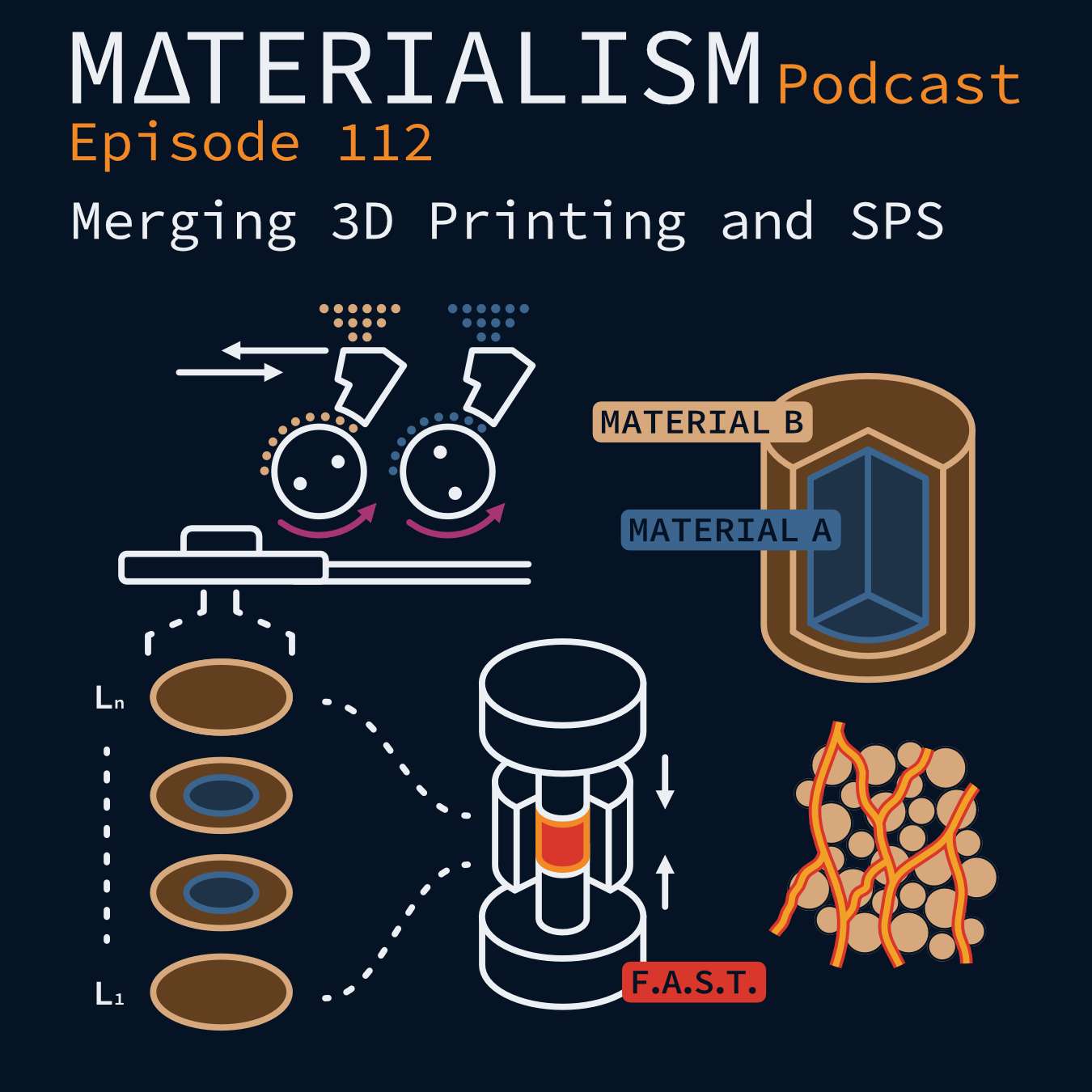
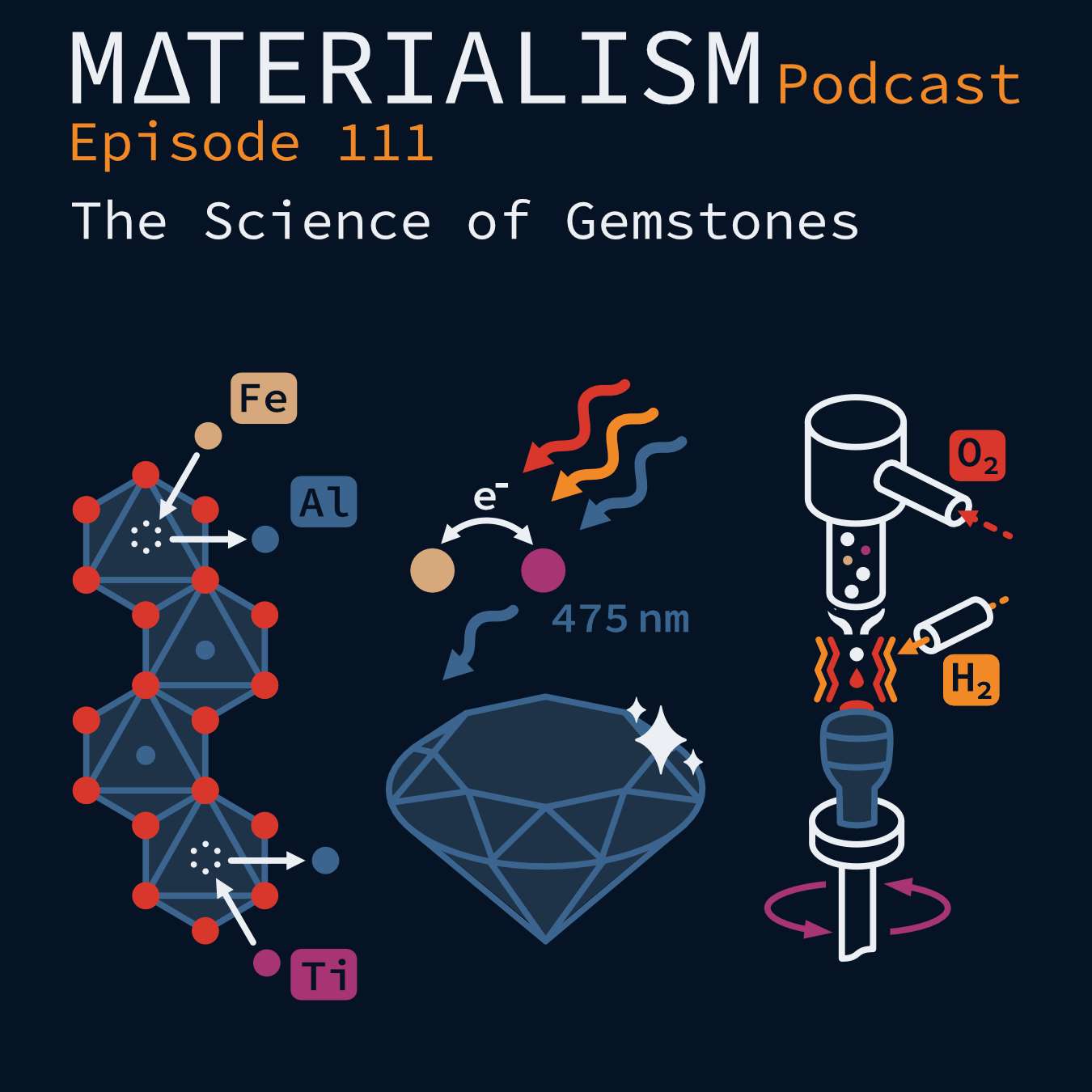
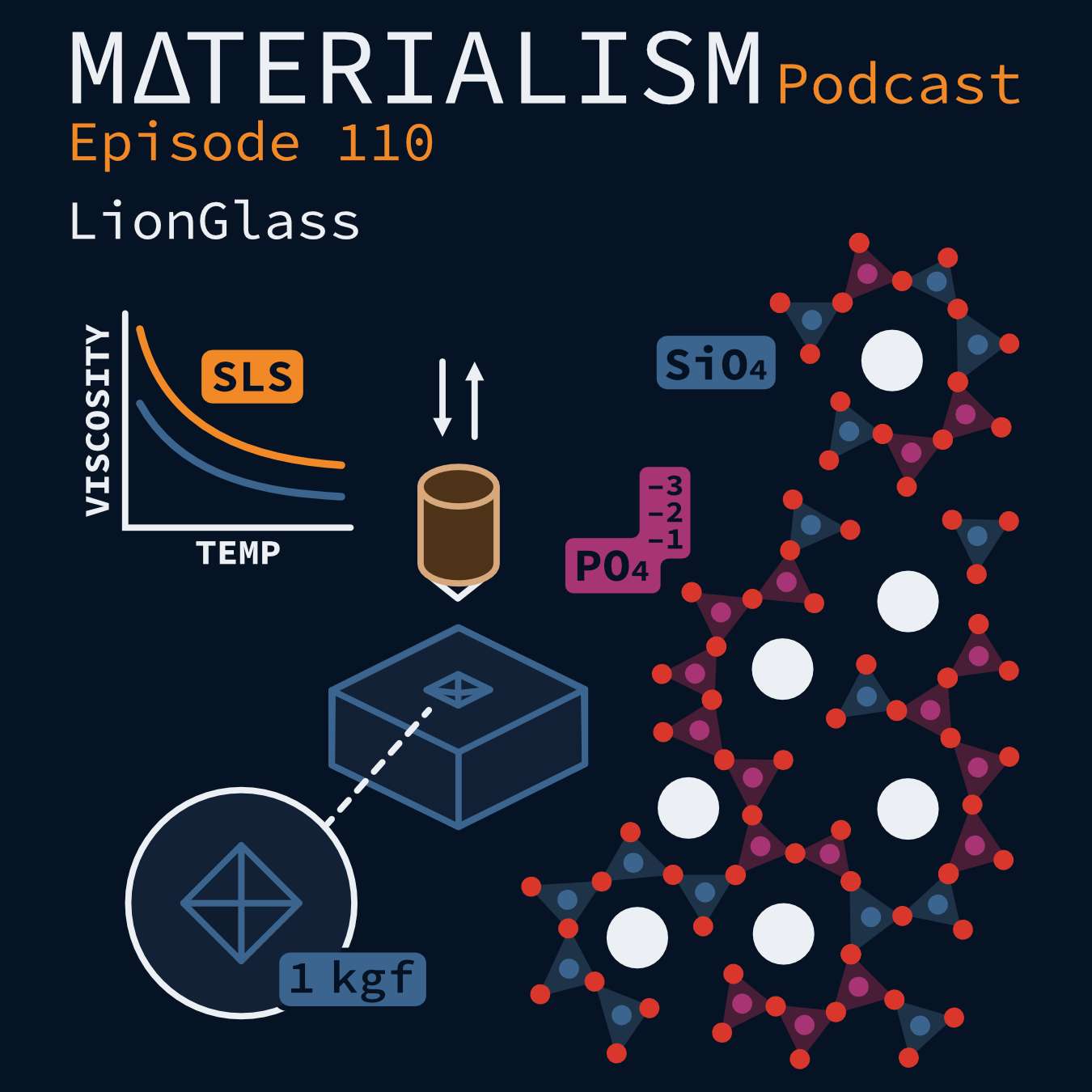
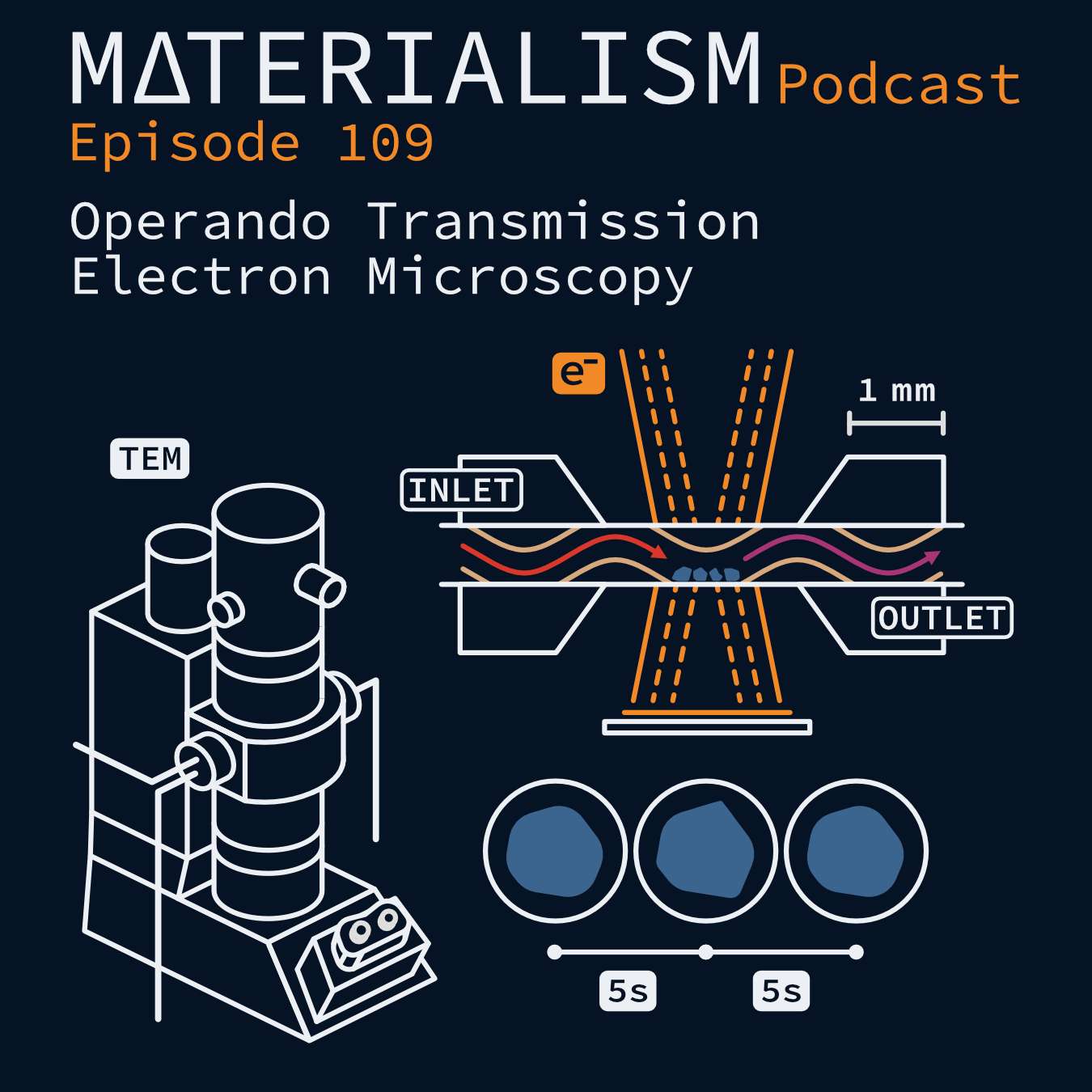
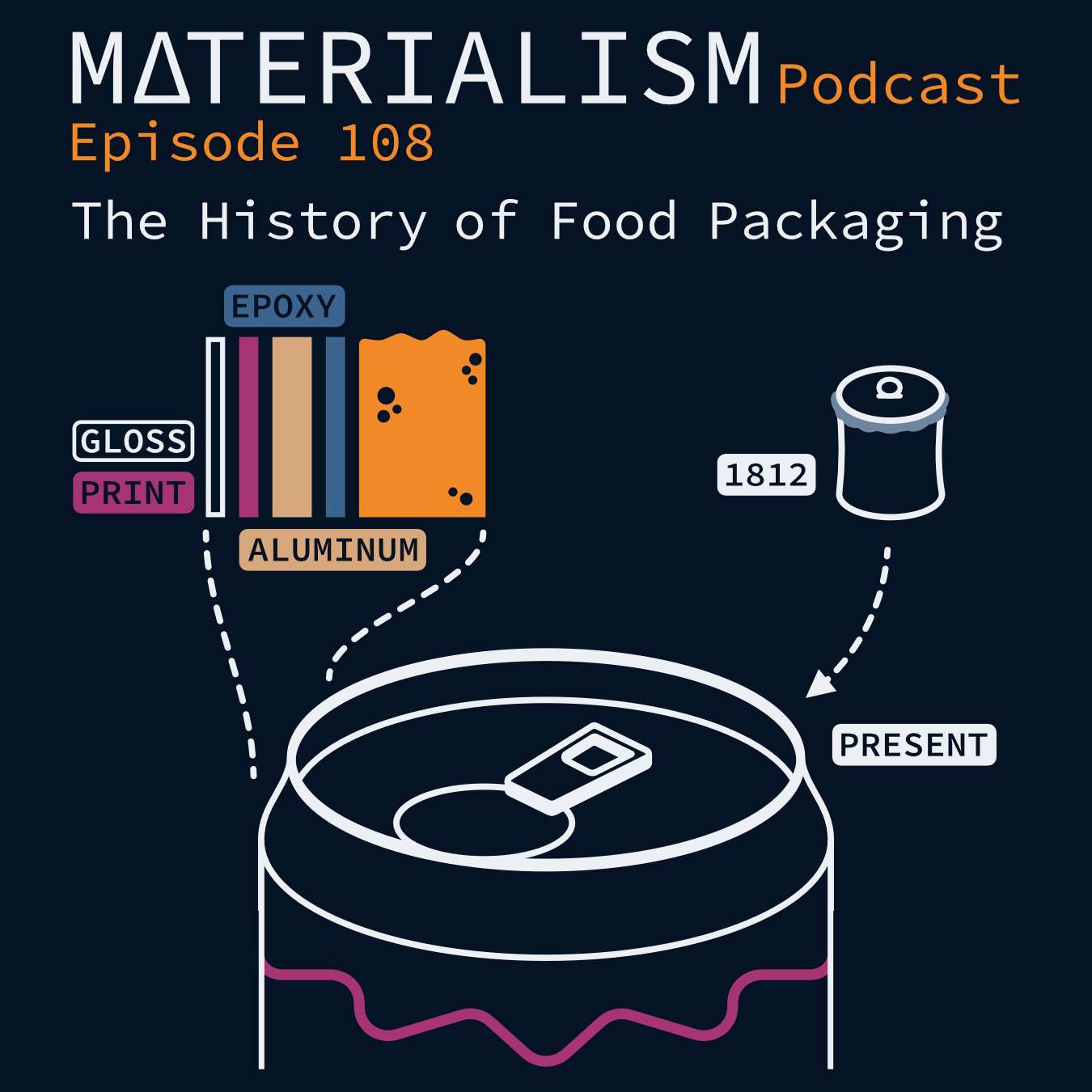
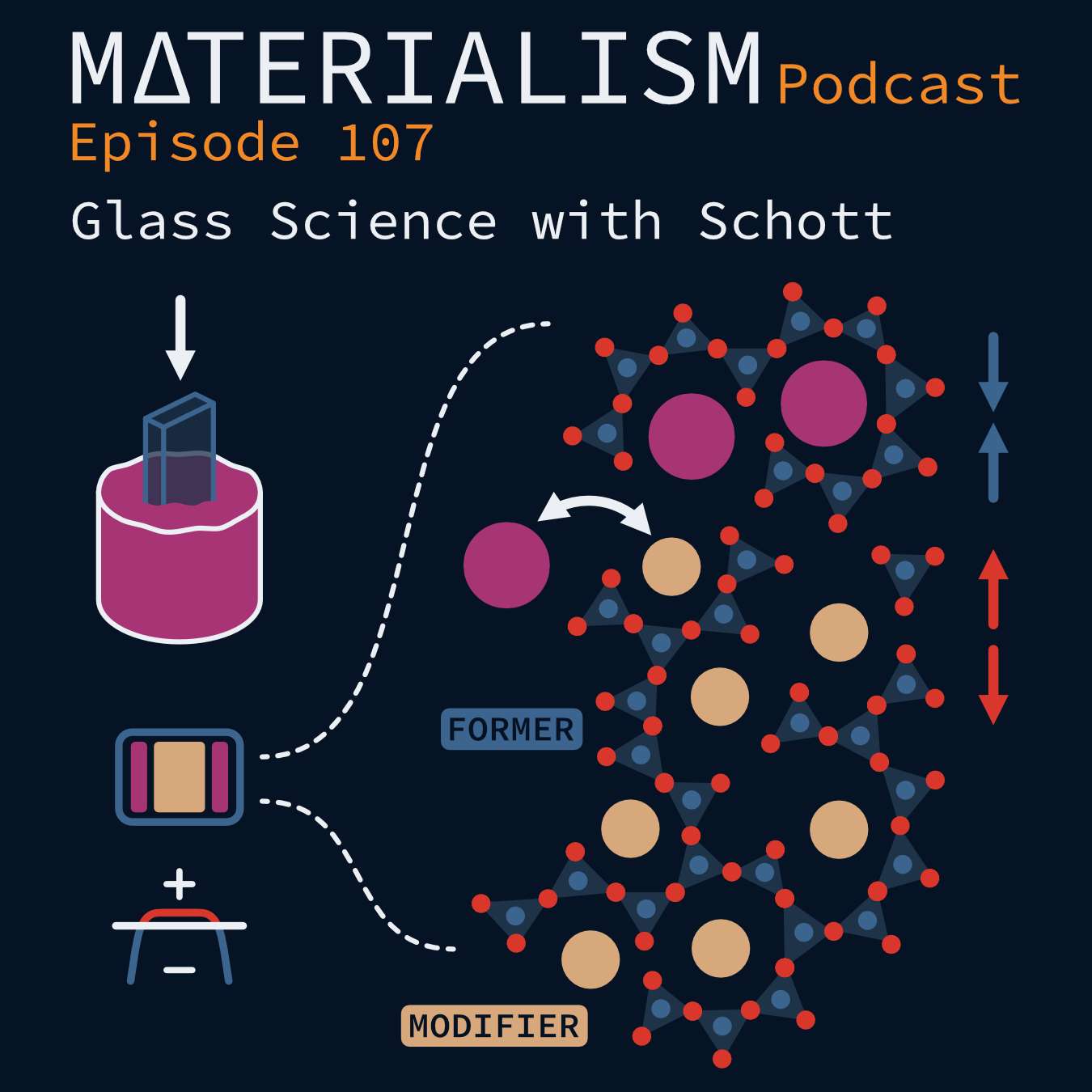
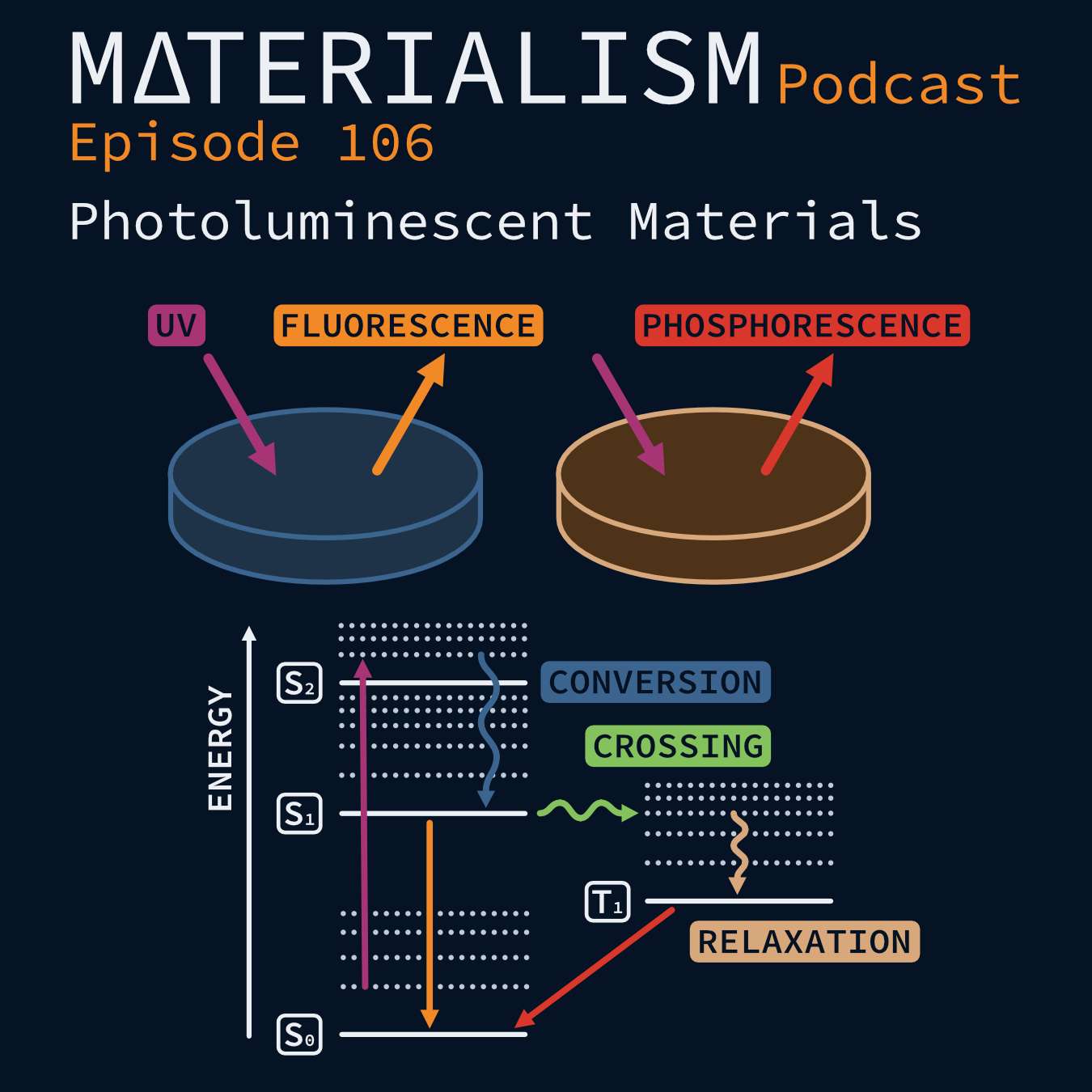
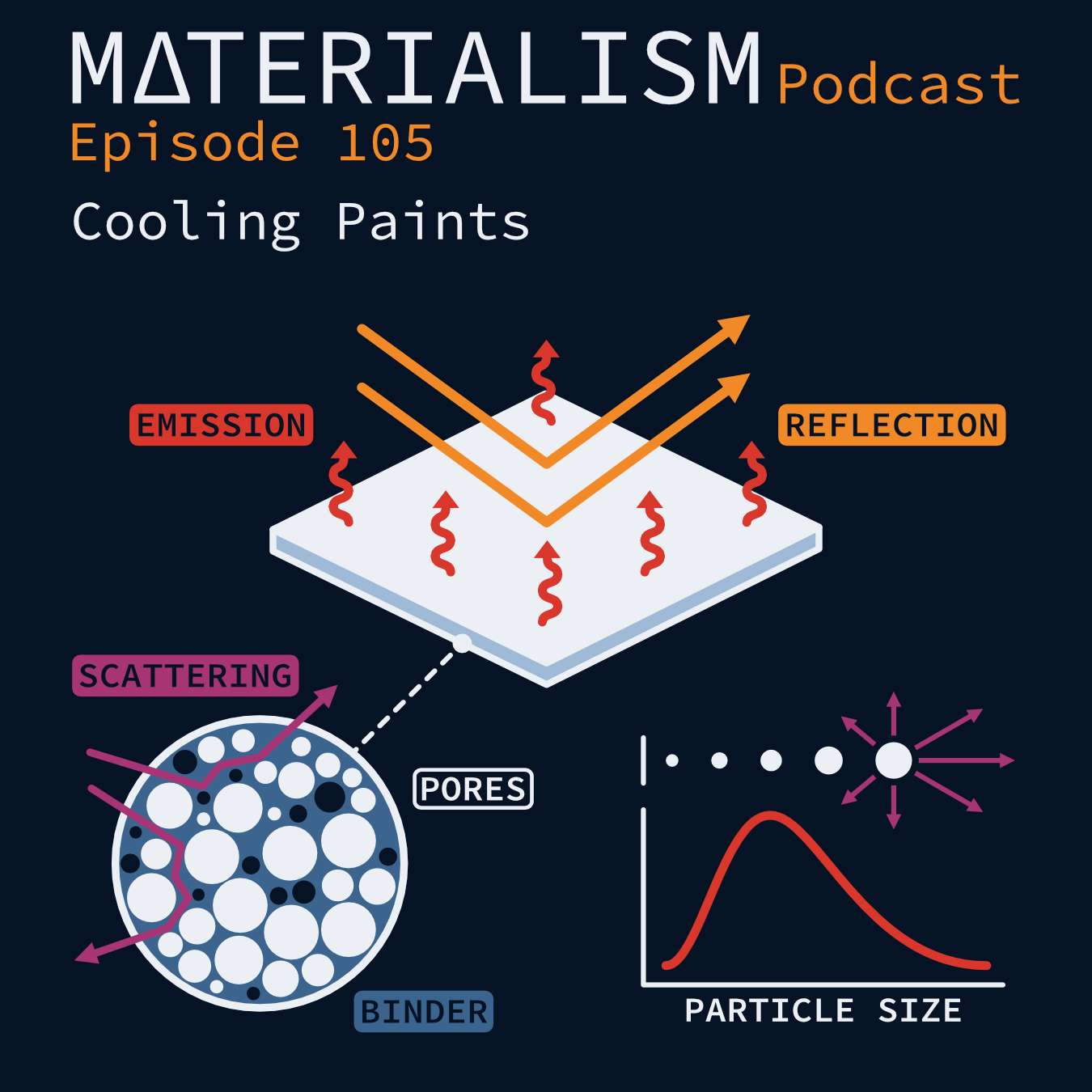
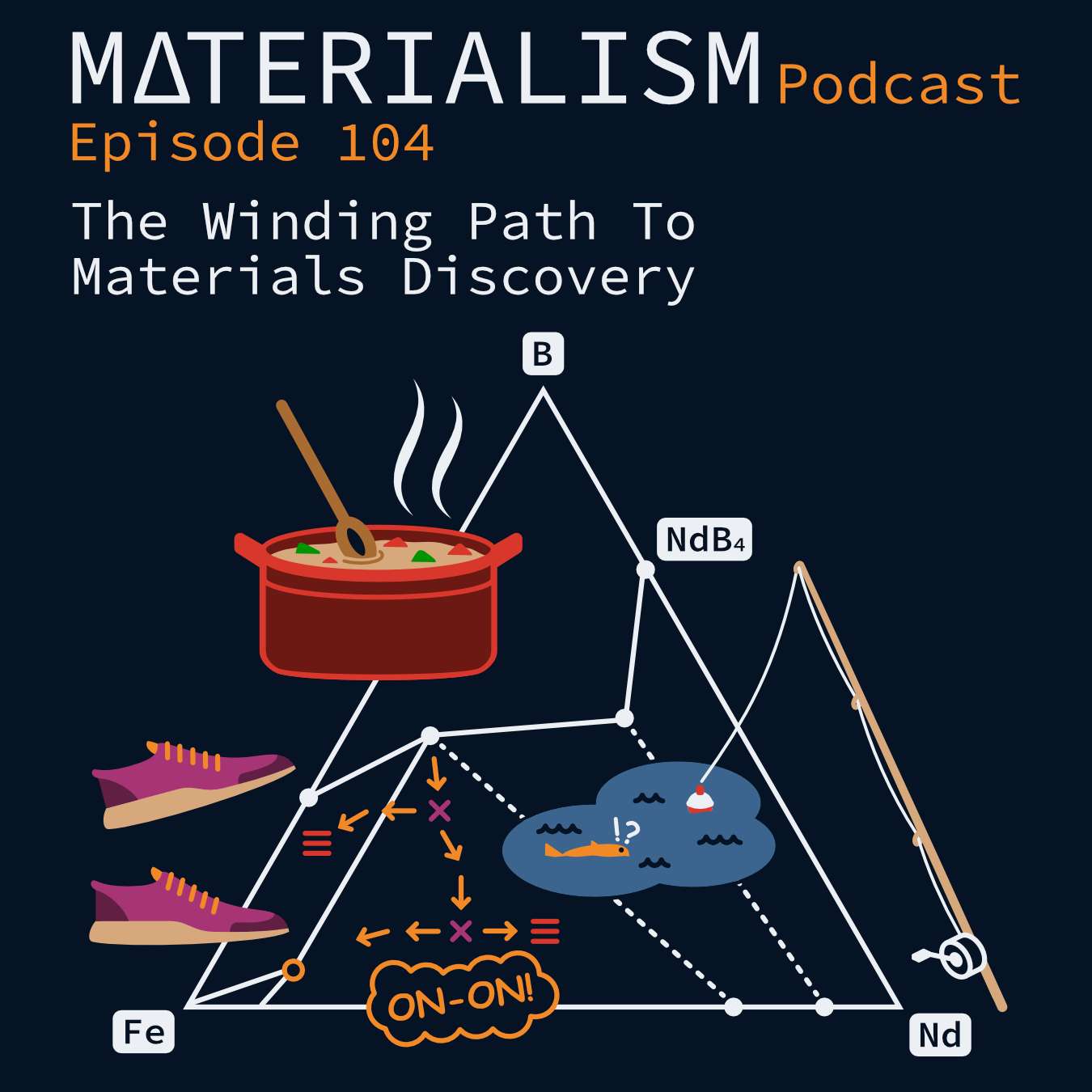
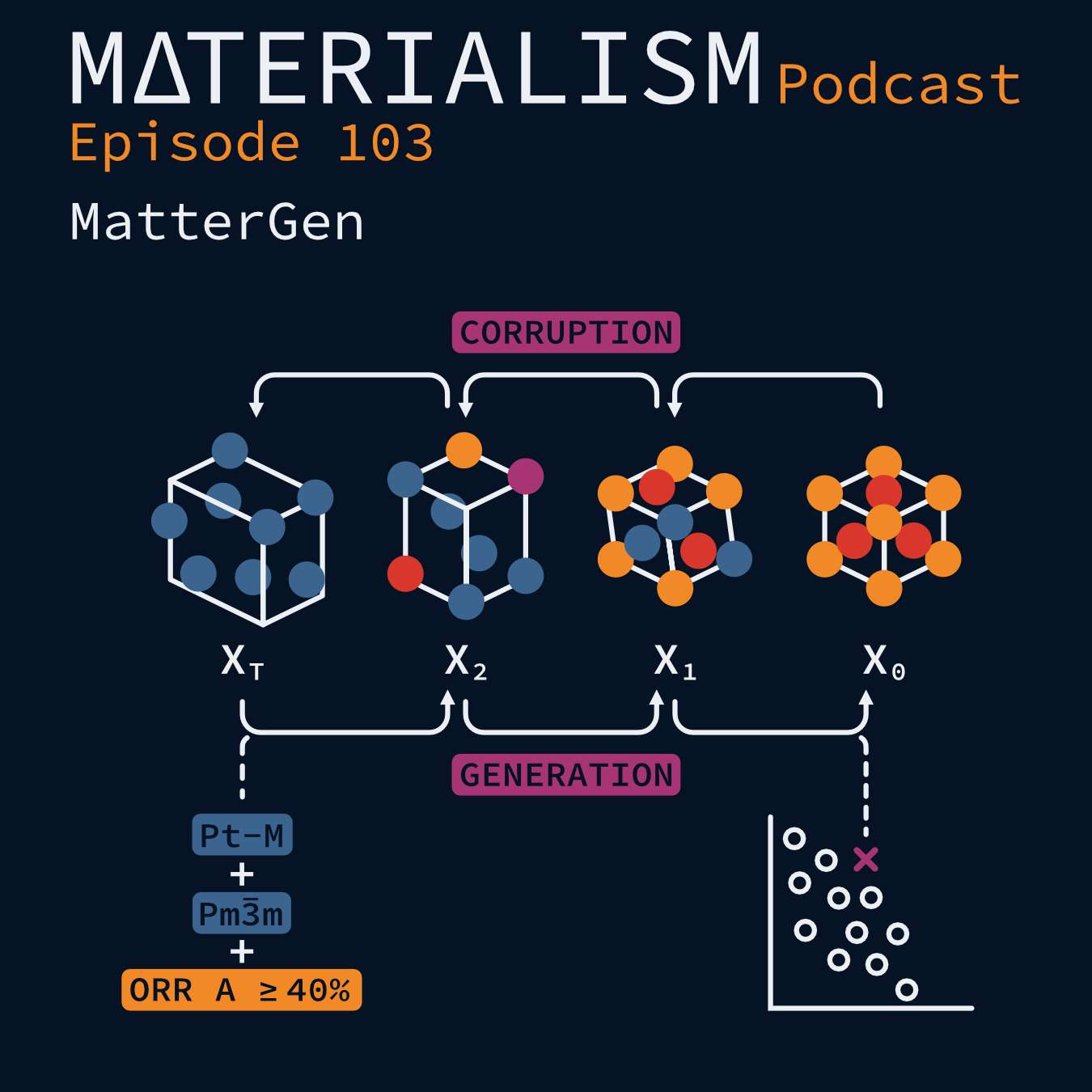
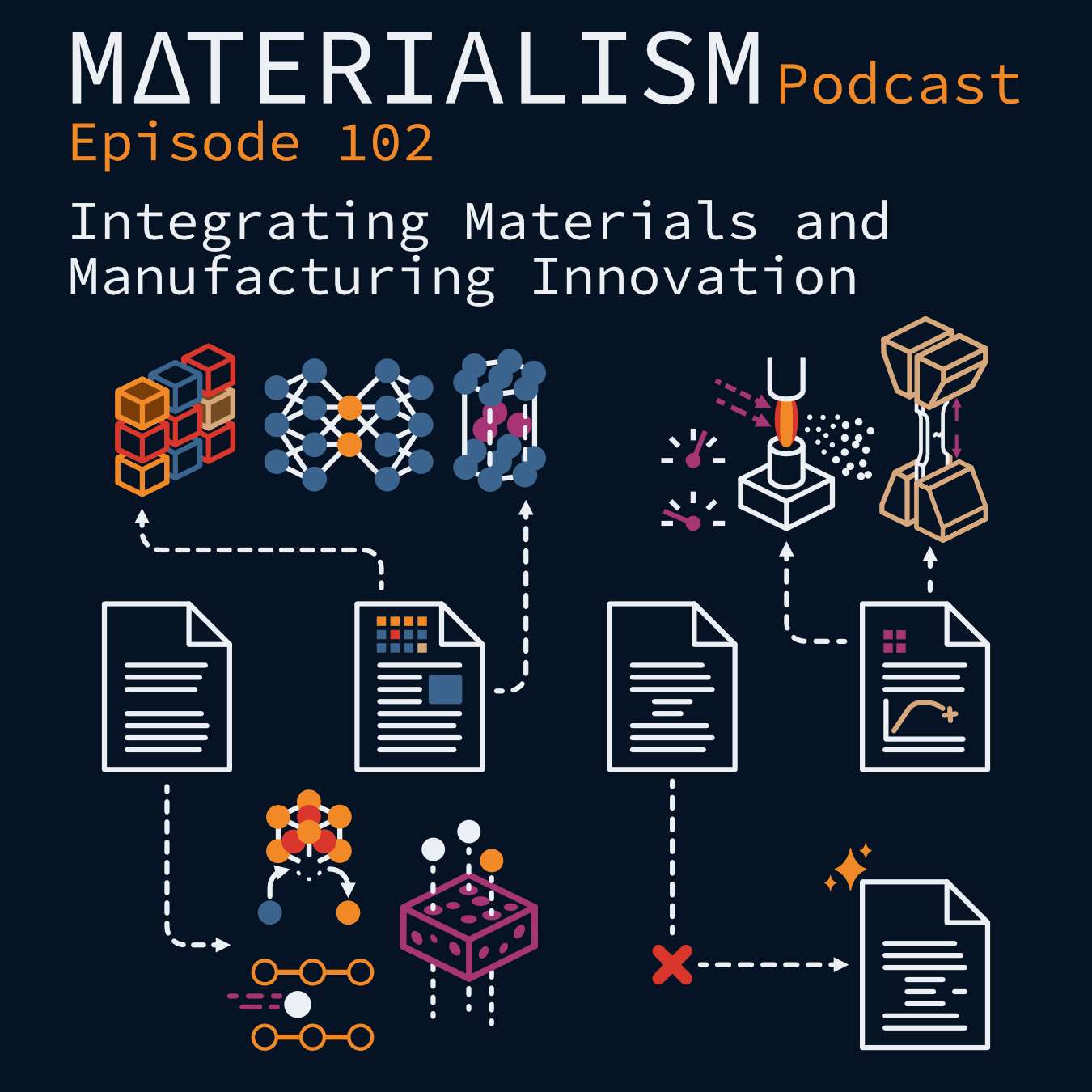
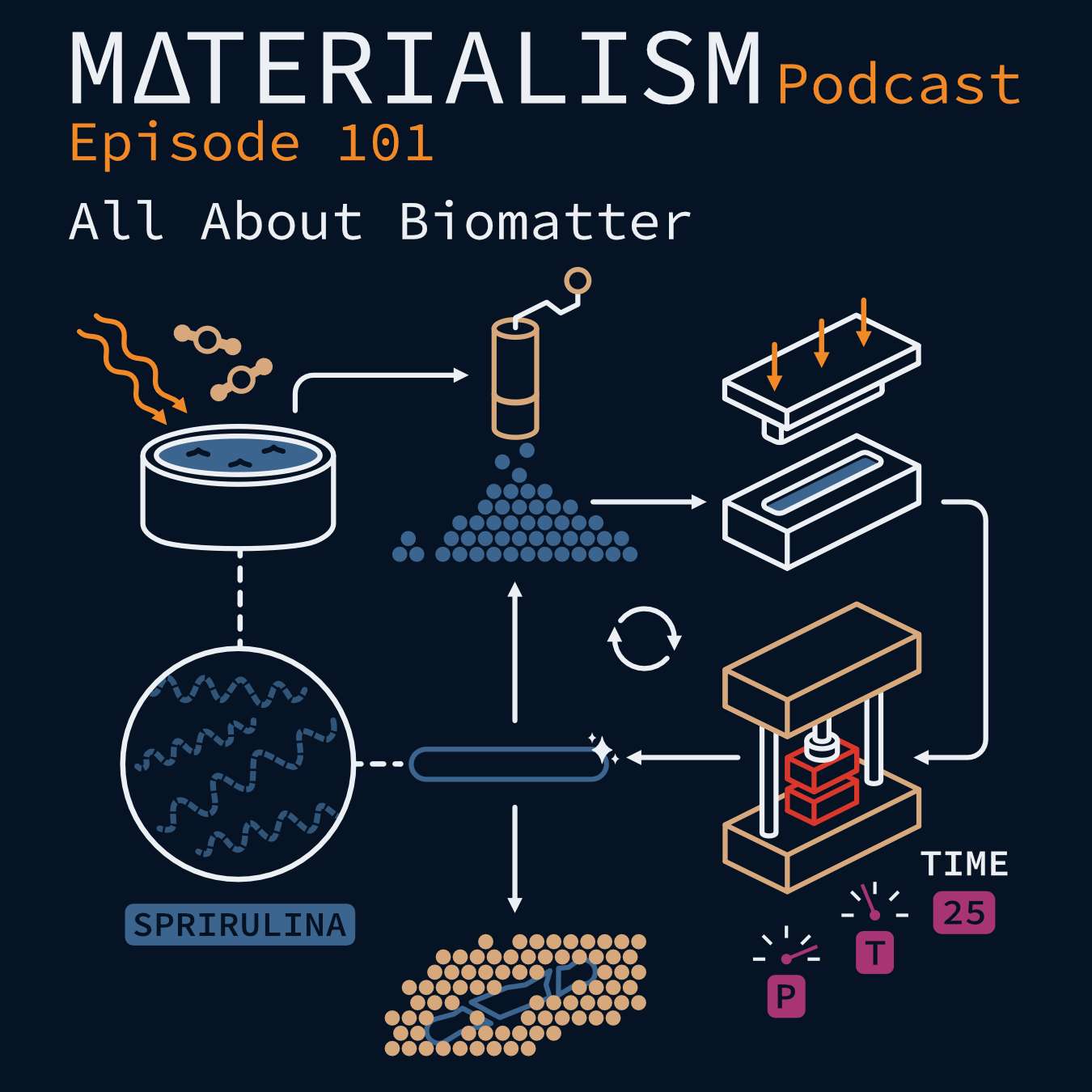
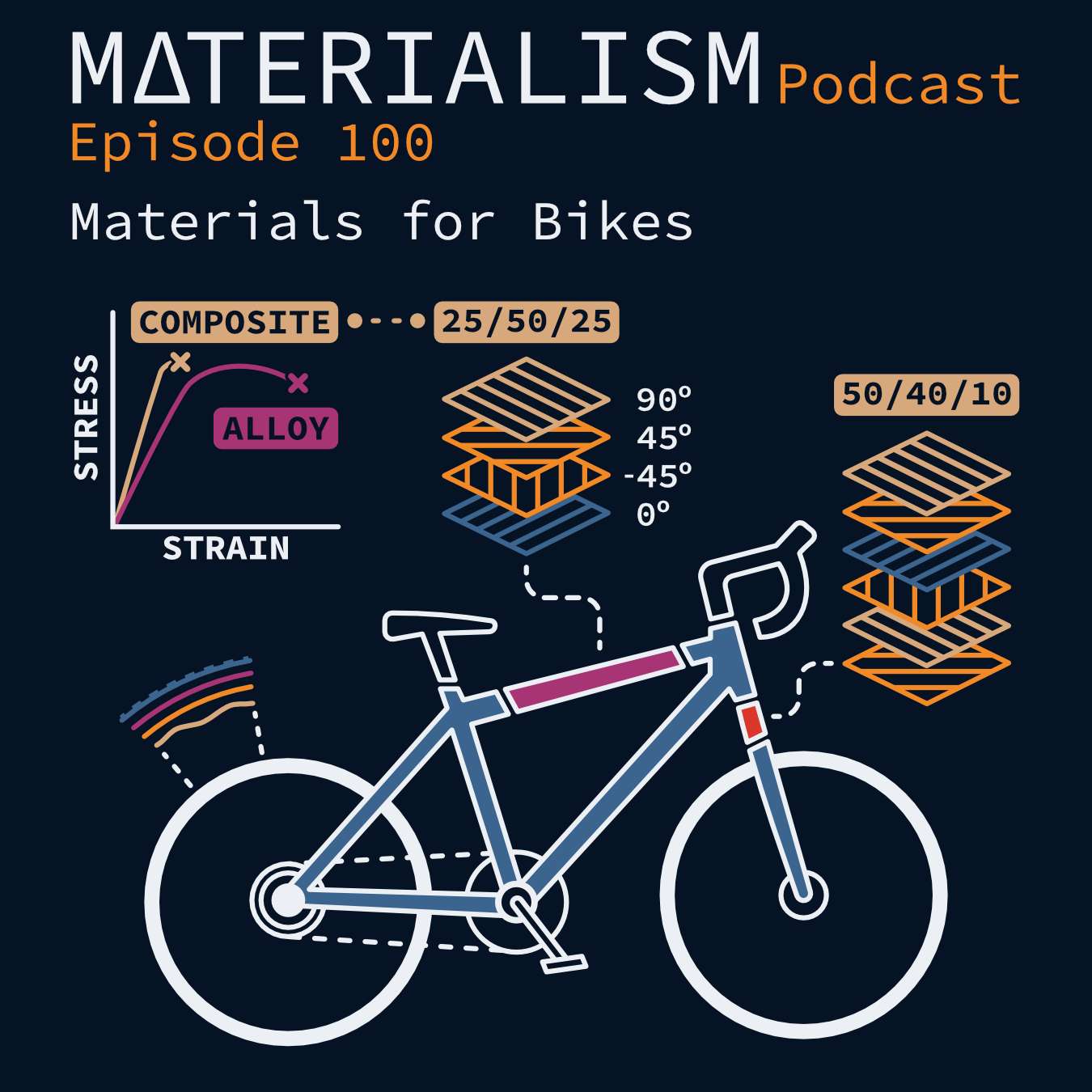
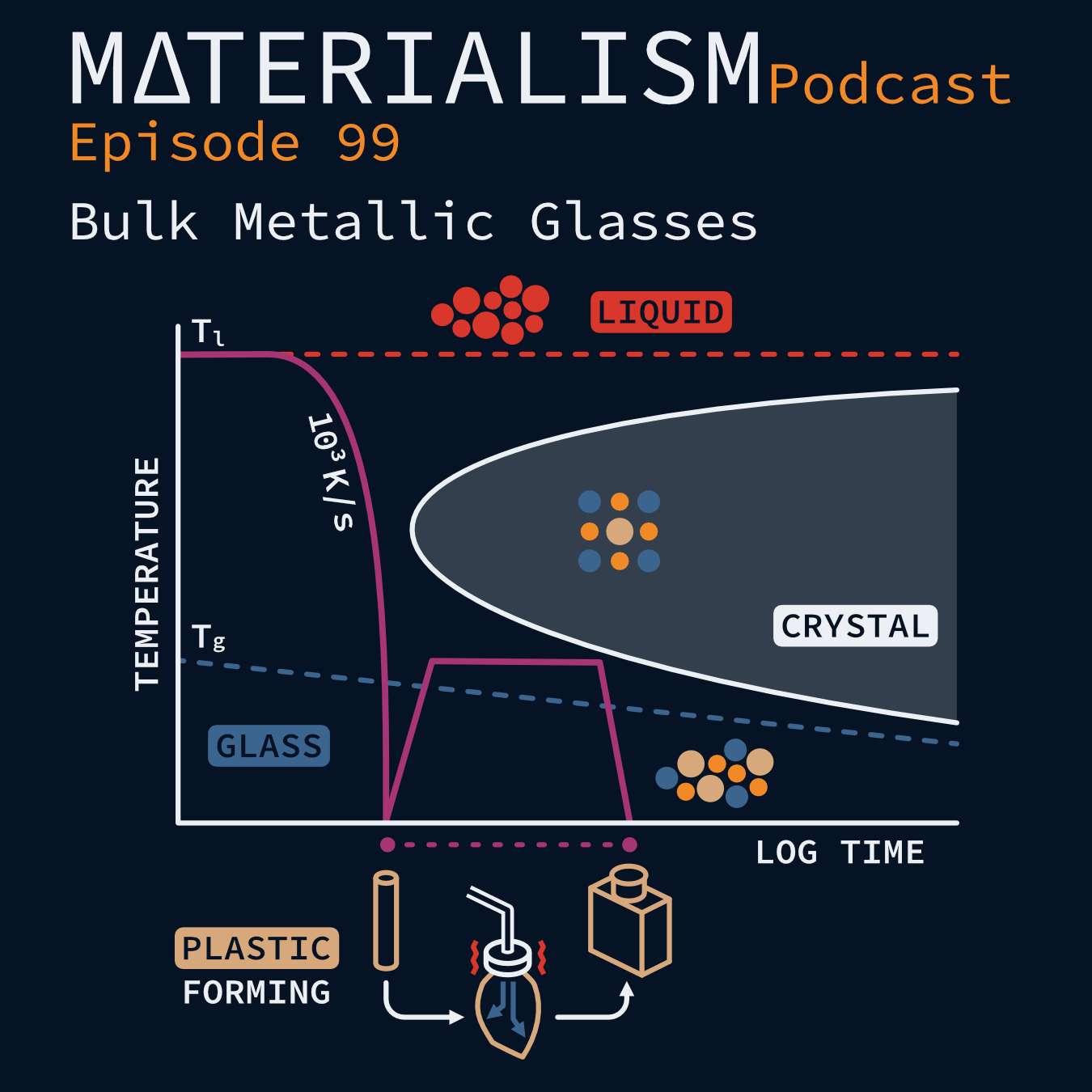
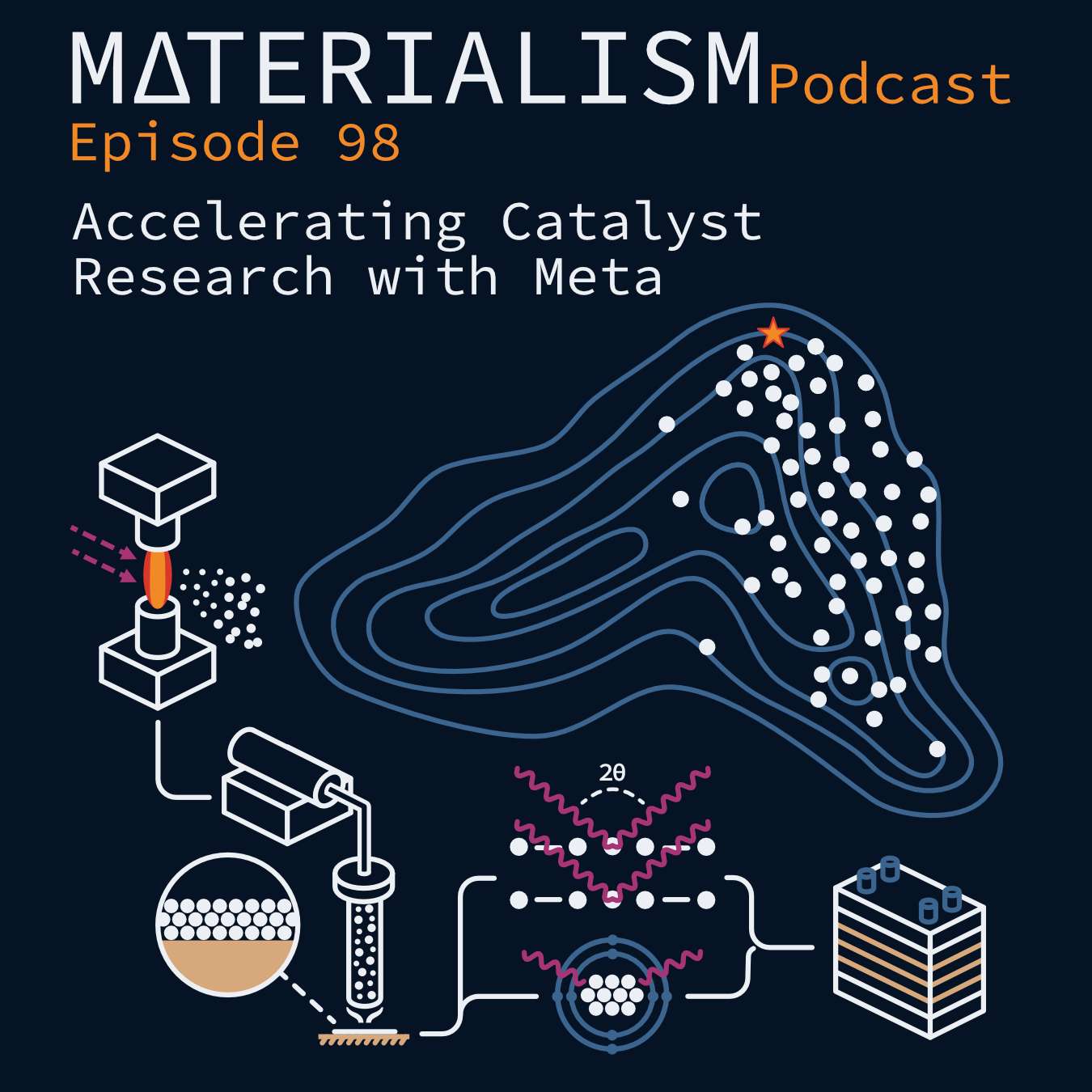








Absolutely love this podcast ❤️🔥 thanks.
Thank you for your channel. Please improve the sound quality. In some parts, the sound is low.
Thank you for this podcast ❤️
This is good sublement to learning this field from a different angle. It is very motivating to listen to.
That was a nice episode. We expect more episodes about Materials Informatics.
Tnx a lot Masters
Great work, love the podcast!
Loving this podcast. keep up the good work guys!